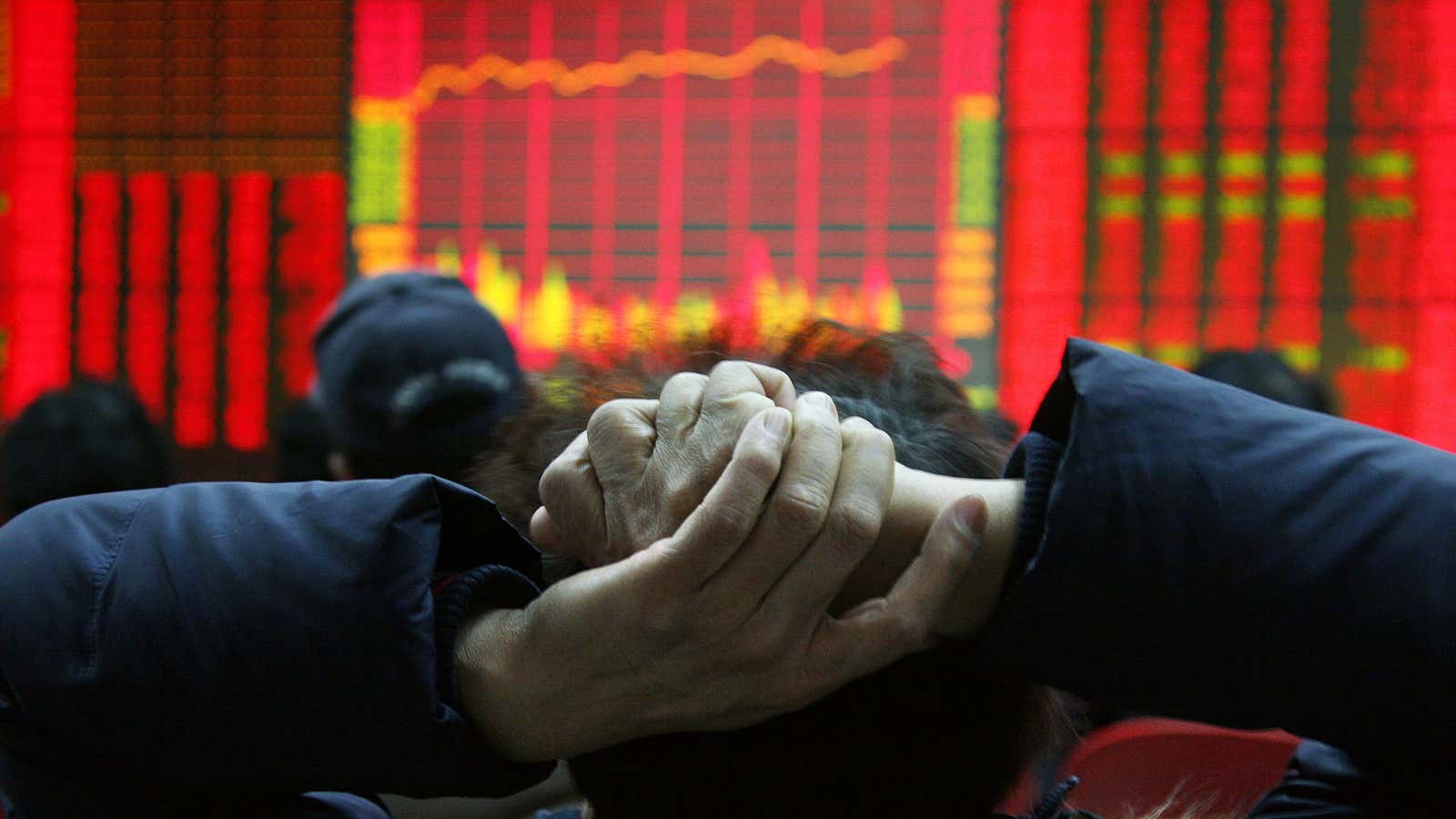As the US presidential candidates prepare for their first debate on Monday (Sept. 26) evening, some 100 million Americans are expected to tune in. But millions of investors around the globe are warily preparing for the face-off too, and some are planning to change their investment strategies based on how well the two candidates do.
In recent years, the US markets have been, as strategists like to say, the “best house in a bad neighborhood.” With Europe’s growth stagnant, Japan’s inflation nonexistent, and some Latin American markets imploding, foreign investing in US securities and stocks has increased in total, making this election particularly important overseas.
And as the race between Democratic candidate Hillary Clinton and Republican Donald Trump tightens to a dead heat, money managers in Asia and around the world are contemplating the changes they might make to their portfolios if Trump appears to get an edge tonight.
Many economists and investors have expressed concern about Trump’s US economic plan, his proposal to slap duties of perhaps 45% on all imports from China, and the effect of his proposed mass deportation of undocumented immigrants. Markets are also spooked by the way that he seems to launch new plans, proposals, and unheard-of ideas without premeditation. If he’s elected, this off-the-cuff style could shake investors’ confidence in the US economy and limit their ability to predict global markets.
Trump’s economic advisors may “shake some sense into him,” said Christoper Balding, a professor of economics at Peking University, and tamp down some of his more unpopular economic ideas. But, “he’s just introducing a level of unknown risk about how economic policy is going to be made, what is acceptable, and how the US will address its issues.”
A Trump victory in the presidential race means the outlook for the US economy “is not good, at least in the short term,” said Lu Tsung, a wealth manager who runs a $30 million fund for 50 retail investors in Shanghai. Despite the weak yuan, it has been harder to convince his clients to convert their cash into US dollars in recent months, Lu says, because they think the US currency will weaken.
“If Trump turns the situation around and leads in public opinion polls,” after the debate, it will be a “black swan” event, Kenny Wen, a wealth management strategist at Sun Hung Kai Financial, told Apple Daily in an interview broadcast on Sept. 25. His trade policies are unfavorable to global markets, and Trump could even fire Janet Yellen, the Federal Reserve chair, Wen predicts. (Yellen is on a fixed four-year term that ends in 2018, and her departure would be highly unusual).
Markets in Hong Kong will also sell off sharply, Wen predicted, with the Hang Seng index dropping below 22,700 by October, and falling below 20,000 if Trump wins in November.
A Trump presidency would deal a blow to mainland China’s markets too. Beijing is already dealing with everything from a real-estate bubble, to non-performing loans, to yuan depreciation, so Trump’s “eagle diplomacy [i.e., hawkish stance] against China, especially in currency policies and exports” would only worsen things, says Calvin Tang, an asset manager and president of Sigma Square Investments in Shanghai.
These actions would hurt China’s exports further, and the “already fragile investor confidence in China” would evaporate, Tang said. Already, “rational” asset managers in China are protecting their portfolios by taking profits, he said. The Shanghai Composite Index dropped nearly 2% on Sept. 26, ahead of the debate.
If the US becomes a less popular global investment destination, “I don’t know where else investors are going to go for a market of this size and liquidity,” Balding said. “Unless you’re going to stick your money into emerging markets, it is difficult to see where this is going to go,” he said. “It is possible people just move into cash.”
Tom Tsui contributed reporting.
